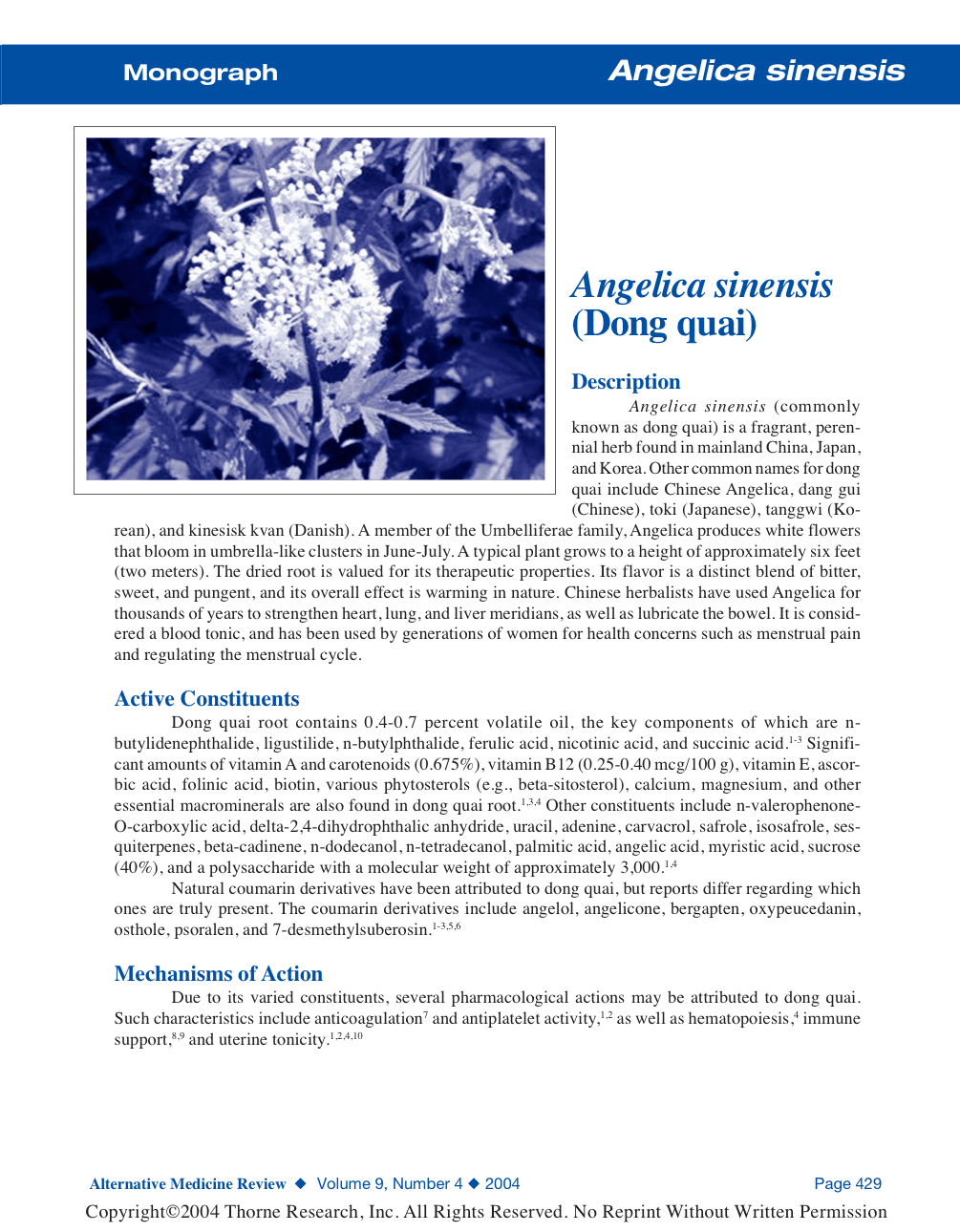Abstract
Angelica sinensis (commonly known as dong quai) is a fragrant, perennial herb found in mainland China, Japan, and Korea. Other common names for dong quai include Chinese Angelica, dang gui (Chinese), toki (Japanese), tanggwi (Korean), and kinesisk kvan (Danish). A member of the Umbelliferae family, Angelica produces white flowers that bloom in umbrella-like clusters in June-July. A typical plant grows to a height of approximately six feet (two meters). The dried root is valued for its therapeutic properties. Its flavor is a distinct blend of bitter, sweet, and pungent, and its overall effect is warming in nature. Chinese herbalists have used Angelica for thousands of years to strengthen heart, lung, and liver meridians, as well as lubricate the bowel. It is considered a blood tonic, and has been used by generations of women for health concerns such as menstrual pain and regulating the menstrual cycle.

